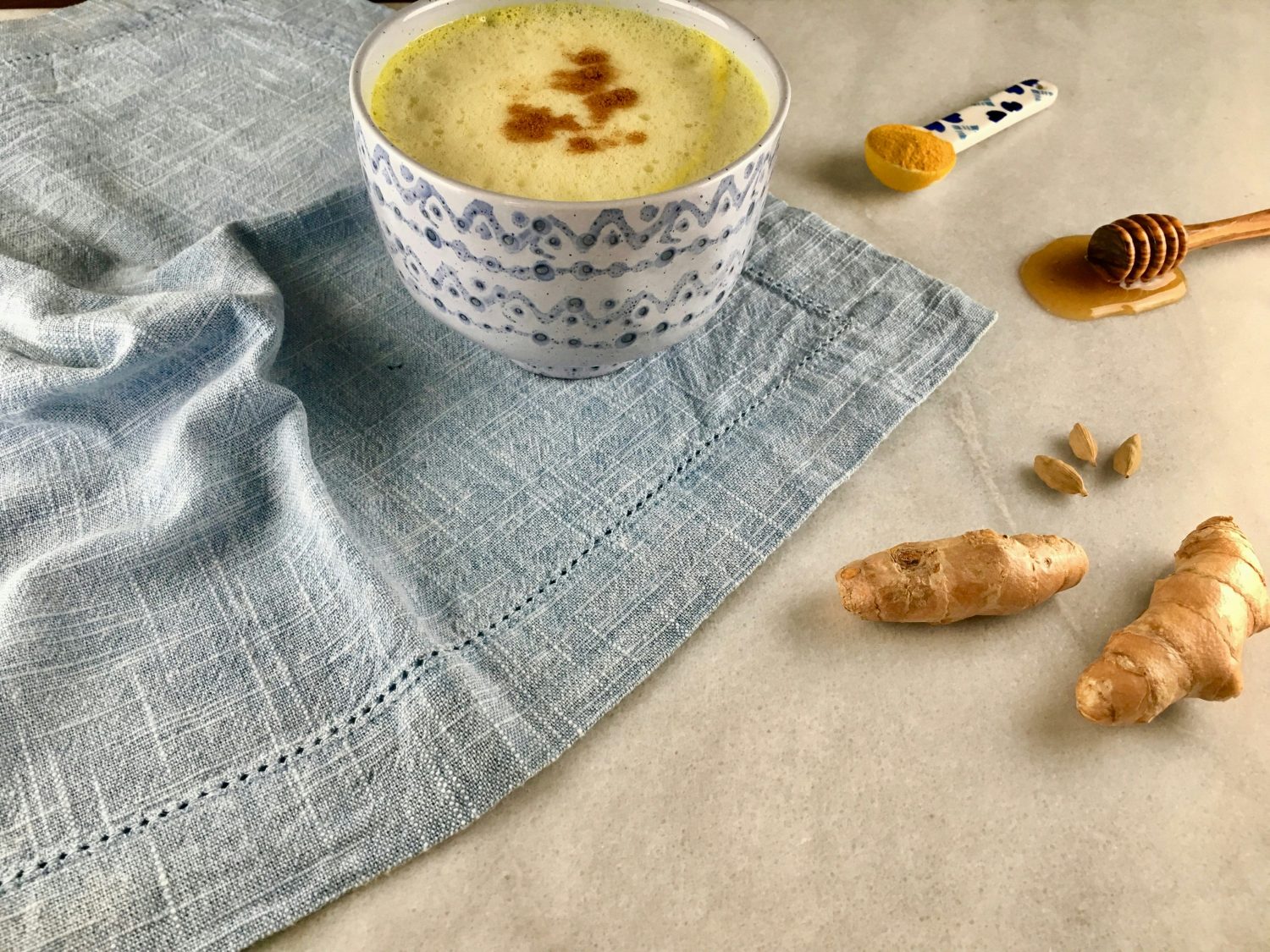Natural anti-inflammatories as effective support
Natural anti-inflammatories are herbal or mineral substances that can help to reduce inflammation in the body in a gentle way. Unlike synthetic medications, natural anti-inflammatories offer a gentler alternative with fewer side effects and can help maintain and promote long-term health.
The importance of anti-inflammation to health cannot be overstated. Inflammation is the body’s natural response to injury or infection and serves to protect and heal tissue. However, chronic inflammation that persists over time can lead to serious health problems, including cardiovascular disease, diabetes and autoimmune disorders. Therefore, it is important to effectively control and treat both acute and chronic inflammation. Natural anti-inflammatories offer an effective way to support the immune system and relieve inflammation naturally. Learn more about the benefits and uses of natural anti-inflammatories in this article.
Foods that promote inflammation
Before we look at natural anti-inflammatories, it’s important to identify pro-inflammatory foods that can increase inflammation in the body. Eliminating these foods can make a significant difference in reducing inflammation and promoting overall health.
Sugar and sweets
High sugar intake can increase the production of pro-inflammatory cytokines and lead to chronic inflammation. Sweets, soft drinks and foods high in sugar should therefore be avoided or severely restricted.
Trans fats
Trans fats, which are often found in processed foods, fast food and margarine, can promote inflammation and increase the risk of cardiovascular disease. Make sure you avoid foods with hydrogenated fats.
Refined carbohydrates
Refined carbohydrates such as white bread, pasta and pastries have a high glycaemic index, which causes blood sugar levels to rise quickly and can promote inflammation. Wholemeal products are a healthier alternative.
Red and processed meat
Red meat and processed meat products such as sausages and ham contain high levels of saturated fats and pro-inflammatory substances that can increase the risk of inflammation and chronic disease.
Alcohol
Excessive alcohol consumption can increase inflammation in the body and put a strain on the liver. Moderate or low consumption of alcohol is recommended to minimise the risk of inflammation.
Omega-6 fatty acids
Although omega-6 fatty acids are essential, excessive consumption compared to omega-3 fatty acids can have a pro-inflammatory effect. Make sure to balance the ratio of omega-6 to omega-3 fatty acids in your diet.
By reducing or eliminating these pro-inflammatory foods, you can actively help to minimise inflammation in your body and improve your health.

What is inflammation?
Definition and causes of inflammation
Inflammation is a natural defence mechanism of the body that occurs in response to injury, infection or harmful stimuli. When inflammation occurs, the body increases blood flow to the affected area and sends white blood cells and other defences there to promote healing and fight infection. Typical signs of inflammation are redness, swelling, warmth, pain and limited function of the affected tissue.
Causes of inflammation can be varied and range from physical injuries (such as cuts or bruises) to infections caused by bacteria, viruses or fungi, chemical irritants and autoimmune reactions in which the immune system mistakenly attacks the body’s own cells.
Acute vs. chronic inflammation
Inflammation can be divided into two main categories: acute and chronic inflammation.
Acute inflammations are short-term reactions of the body to injuries or infections. They occur quickly and usually last only a few days to weeks. Acute inflammation is usually helpful and necessary for the healing process as it protects and repairs the affected tissue. Examples of acute inflammation are cuts, burns or infections such as tonsillitis.
Chronic inflammations, on the other hand, are long-lasting inflammations that can last for months or even years. They often occur when the body does not fully clear an inflammation or when the immune system is constantly activated, for example by prolonged stress, a poor diet, environmental toxins or chronic infections. Chronic inflammation can lead to a variety of health problems, including cardiovascular disease, diabetes, arthritis and autoimmune diseases. These long-lasting inflammations weaken the immune system and can increase the risk of serious diseases.
Understanding the differences between acute and chronic inflammation is important in order to take appropriate measures for prevention and treatment. Natural anti-inflammatories can provide valuable support to control both acute and chronic inflammation and promote overall health.
Benefits of natural anti-inflammatories
Gentle effect compared to synthetic medications
Natural anti-inflammatories offer the advantage of a gentler effect compared to synthetic medications. While conventional anti-inflammatory drugs such as non-steroidal anti-inflammatory drugs (NSAIDs) or corticosteroids are effective, they can also cause unwanted side effects, especially with long-term use. These include gastrointestinal complaints, kidney problems and an increased risk of cardiovascular disease. In contrast, natural anti-inflammatory agents, such as those found in plants, herbs and foods, often have a milder effect and are better tolerated. They can alleviate inflammation without the negative side effects that often occur with synthetic medications.
Supporting the immune system
Natural anti-inflammatories help to support the immune system by regulating inflammation while promoting balance in the body. Many natural substances have antioxidant properties that neutralise free radicals and thus prevent cell damage. These antioxidant effects strengthen the immune system and help to mobilise the body’s defences. In addition, natural anti-inflammatory agents can help to reduce the production of pro-inflammatory molecules and promote the activity of anti-inflammatory processes. A well-functioning immune system is crucial for the defence against infections and the maintenance of general health.
Prevention of chronic diseases
Another significant benefit of natural anti-inflammatories is their role in the prevention of chronic disease. Chronic inflammation is a major risk factor for the development of many serious health problems, including cardiovascular disease, diabetes, arthritis and various autoimmune diseases. By regularly taking natural anti-inflammatories, you can help to reduce chronic inflammation and thus lower the risk of these diseases. Natural substances such as curcumin, omega-3 fatty acids and ginger have been shown in studies to be effective in reducing inflammation and promoting health.
The benefits of natural anti-inflammatories are many and varied, making them a valuable addition to a healthy lifestyle. They offer a gentle and effective way to fight inflammation, strengthen the immune system and prevent chronic diseases. By integrating natural anti-inflammatories into your daily diet, you can support your long-term health and improve your well-being.

Important natural anti-inflammatories
Turmeric and curcumin
Turmeric, a bright yellow spice commonly used in Indian cuisine, contains the active ingredient curcumin. Curcumin is known for its powerful anti-inflammatory and antioxidant properties. Studies have shown that curcumin can inhibit the production of pro-inflammatory molecules such as cytokines and enzymes. It is particularly effective in reducing inflammation in joints and muscles, making it a popular choice in the treatment of arthritis and other inflammatory conditions.
Omega-3 fatty acids
Omega-3 fatty acids, found in fatty fish such as salmon, mackerel and sardines, as well as flaxseed, chia seeds and walnuts, are essential fatty acids with powerful anti-inflammatory properties. They help to reduce the production of pro-inflammatory eicosanoids and cytokines. Omega-3 fatty acids are not only important for heart health, but also for reducing chronic inflammation throughout the body.
Ginger
Ginger is another powerful natural anti-inflammatory that has been used in traditional medicine for centuries. The active ingredient gingerol in ginger has anti-inflammatory and antioxidant effects. Ginger can help reduce inflammation and pain, especially in conditions such as osteoarthritis and rheumatoid arthritis. Ginger can also aid digestion and relieve nausea.
Boswellia (frankincense)
Boswellia, also known as Indian frankincense, contains boswellic acids, which have strong anti-inflammatory properties. Boswellia is traditionally used to treat chronic inflammatory conditions such as arthritis, asthma and inflammatory bowel disease. It works by inhibiting certain enzymes responsible for the production of pro-inflammatory molecules.
Green tea extract
Green tea contains a high concentration of polyphenols, in particular epigallocatechin gallate (EGCG), which has strong anti-inflammatory and antioxidant properties. EGCG can reduce inflammation in the body and promote heart health. Green tea extract is often used as a dietary supplement to maximise the overall health benefits of green tea.
Citrus fruits
Citrus fruits such as oranges, lemons and grapefruits are rich in vitamin C and flavonoids, which have anti-inflammatory and antioxidant properties. Vitamin C is crucial for supporting the immune system and fighting inflammation. Regular consumption of citrus fruits can help reduce inflammation and promote overall health.
Pineapple
Pineapple contains bromelain, an enzyme that has anti-inflammatory properties. Bromelain can help reduce swelling and inflammation, especially after injury or surgery. It is also used to relieve indigestion and aid recovery after physical exertion.
Onions
Onions are rich in quercetin, a flavonoid with strong anti-inflammatory and antioxidant properties. Quercetin can help reduce the release of histamines and fight inflammation. Regular consumption of onions can help reduce the risk of chronic inflammation and related diseases.
Nuts
Nuts such as almonds, walnuts and hazelnuts are rich in healthy fats, vitamins and antioxidants. They also contain polyphenols, which have anti-inflammatory properties. Regular consumption of nuts can help reduce inflammation in the body and promote heart health.
| Natural anti-inflammatory | Important ingredient | Main benefits |
|---|---|---|
| Turmeric | Curcumin | Anti-inflammatory, antioxidant |
| Omega-3 fatty acids | EPA, DHA | Reduces pro-inflammatory molecules |
| Ginger | Gingerol | Anti-inflammatory, pain-relieving |
| Boswellia (frankincense) | Boswellic acids | Anti-inflammatory, soothing for arthritis |
| Green tea extract | EGCG | Anti-inflammatory, antioxidant |
| Citrus fruits | Vitamin C, flavonoids | Supports the immune system, anti-inflammatory |
| Pineapple | Bromelain | Anti-inflammatory, promotes healing |
| Onions | Quercetin | Reduces histamine release, anti-inflammatory |
| Nuts | Polyphenols, healthy fats | Anti-inflammatory, promotes heart health |
These natural anti-inflammatories offer a variety of health benefits and can be incorporated into your daily diet in different ways. They help the body fight inflammation and promote your long-term health and well-being.
Recommended dosage of natural anti-inflammatories
| Natural anti-inflammatory | Recommended dosage | Integration into the diet |
|---|---|---|
| Turmeric | 500-2000 mg curcumin | Curries, soups, smoothies, rice dishes |
| Omega-3 fatty acids | 1000-3000 mg EPA/DHA | Fatty fish, omega-3 supplements |
| Ginger | 1-2 g fresh ginger | Teas, smoothies, curries, salad dressings |
| Boswellia | 300-500 mg boswellic acids | Boswellia extracts, frankincense resin |
| Green tea extract | 250-500 mg, 3-4 cups of tea | Green tea, smoothies, drinks |
| Citrus fruits | 1 portion daily | Oranges, grapefruits, salads, juices |
| Pineapple | 100-200 g, 500 mg bromelain | Fresh, fruit salads, smoothies |
| Onions | 1/2 onion, 500 mg quercetin | Salads, soups, stews, sauces |
| Nuts | 30 g daily | Snacks, muesli, yoghurt, salads, baking |
By following these dosage recommendations and incorporating these natural anti-inflammatories into your daily diet, you can support your health and fight inflammation naturally.
Conclusion
Natural anti-inflammatories offer a gentle and effective way to reduce inflammation in the body and promote overall health. Unlike synthetic medications, they are often better tolerated and can be used safely over the long term. By avoiding pro-inflammatory foods and incorporating natural anti-inflammatories such as turmeric, omega-3 fatty acids, ginger, boswellia, green tea extract, citrus fruits, pineapple, onions and nuts into your daily diet, you can actively contribute to reducing inflammation and preventing chronic disease.